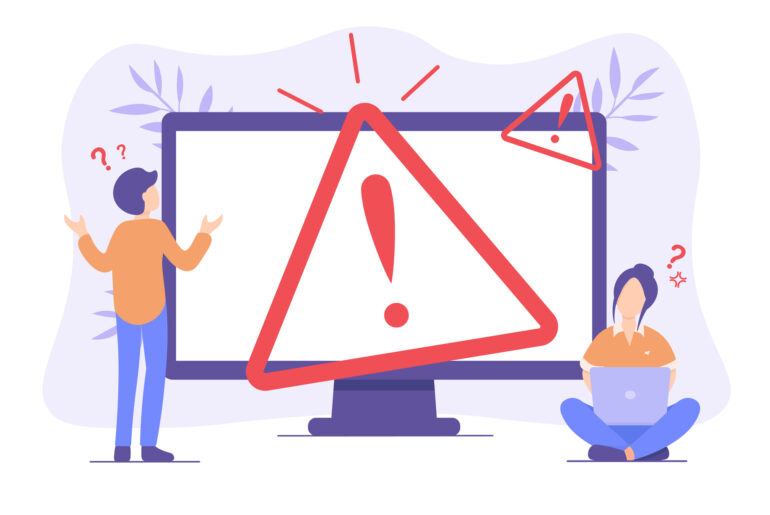In many cases, there will be red flags that should trigger you to look closer and help keep you from getting trapped in deception and disappointment.
Get money for college by finding vetted, legitimate scholarships through Peterson’s scholarship search!
College scholarship scams: the fee factor
Some things are obvious once you know what to look for, but others can be hard to unearth. If you find yourself receiving college scholarship offers that seemed to just magically appear, be on the lookout for the following:
The scholarship service offers a money-back guarantee if you don’t get a scholarship.
No one can guarantee that you’ll be awarded a grant or a scholarship. Refund guarantees usually have impossible conditions attached. Typically, deceitful scholarship services require you to show rejection letters from each of the sponsors on the list they provided. If a sponsor no longer exists, doesn’t provide college scholarships, or has a rolling application deadline, letters of rejection are almost impossible to obtain. (If you do consider using a service, ask to review their refund policies in writing before you pay any fees.)
The scholarship service asks for your credit card or bank account number.
Never provide your credit card or bank account number to anyone or any organization that you don’t know. A legitimate need-based scholarship program doesn’t need your account number and certainly won’t ask for it. An unscrupulous business can illegally drain your account with unauthorized withdrawals.
The scholarship service charges you a fee.
This should immediately raise a red flag! Be wary of any charges related to scholarship information services or individual scholarship applications, especially in significant amounts. There are some legitimate scholarship sponsors that charge small fees to defray their processing expenses, but this isn’t the norm. True scholarship sponsors give out money; they don’t profit from their application fees.
College scholarship scams: “Wow! Really!?” tactics
If you find yourself saying exactly that, it could be a clue that perhaps things aren’t all they seem. Don’t believe everything you hear!
The service claims to be the only one with the information.
Scholarship directories from many publishers are available in any large bookstore, public library, high school guidance office, or on the Web. You can usually find what you need without ever paying a dime.
The service claims you are a finalist or a winner in a contest you never heard of.
A legitimate student scholarships program almost never seeks specific applicants and will only contact you in response to your inquiry. However, if you think the undergraduate scholarships may be legitimate, look into the details and check out the company before you send any money.
The scholarship service offers to do all the work for you.
It may sound like a sweet deal but unfortunately, nobody but you can fill out all the personal information forms, write the essays, and supply the references that many university scholarships require. Winning a scholarship usually involves “selling yourself” to the people offering the scholarship. Only you can sell yourself, because you know yourself better than anyone else.
College scholarship scams: the truth may be hard to find
While some tactics are easy to spot, there are criminals out there that can be pretty savvy when it comes to pulling the wool over your eyes and stealing your money right out from under you. Many illegitimate operations use sophisticated means of making themselves look like the real thing. Stay a step ahead of them by raising your awareness of the following:
Just because it sounds legit, doesn’t mean it is.
A fraudulent student scholarship operation often uses an official-sounding name that contains words such as federal, national, administration, division, federation, and foundation. These names often are a slight variant of the names of a legitimate government or private organization. Don’t be fooled by an agency that sounds reputable or official, sports an official-looking seal, or has a Washington, D.C., address.
Official notification will arrive in writing by mail, not by telephone.
If the sponsor notifies you by phone, they should follow up with a letter. If they ask you for money, it’s probably a scam.
Read the letterhead on your notification or the return address on the envelope.
Be wary if an organization’s address is a box number or a residential address. If a bona-fide program (offering undergraduate scholarships) uses a post office box number, it will usually include a street address and telephone number on the stationary as well.
Beware of telephone numbers with a 900 area code.
These may charge you a fee of several dollars a minute for a call that is no more than a long recording that provides a list of addresses or names. You won’t be able to tell where the call originated, and the information you receive may be outdated or useless.
A dishonest operation may put pressure on you.
Be wary if you hear the claim that awards are given out on a first-come, first-served basis. While some scholarship programs do give preference to earlier qualified applicants, if you are told (especially on the telephone) that you must respond quickly, there may be a problem. Chances are you’ll never hear back or it will take several months to get any type of response.
Watch out for endorsements.
Sham operations claim endorsements by groups with names similar to well-known private or government organizations. The Better Business Bureau (BBB) and government agencies do not endorse businesses.
To find out more on how to recognize, report, and stop a university scholarships scam, contact:
The Federal Trade Commission
600 Pennsylvania Avenue, NW
Washington, D.C. 20580
The National Fraud Information Center
(800) 876-7060
The Council of Better Business Bureaus
4200 Wilson Boulevard, Suite 800
Arlington, Virginia 22203-1838
(800) 955-5100



